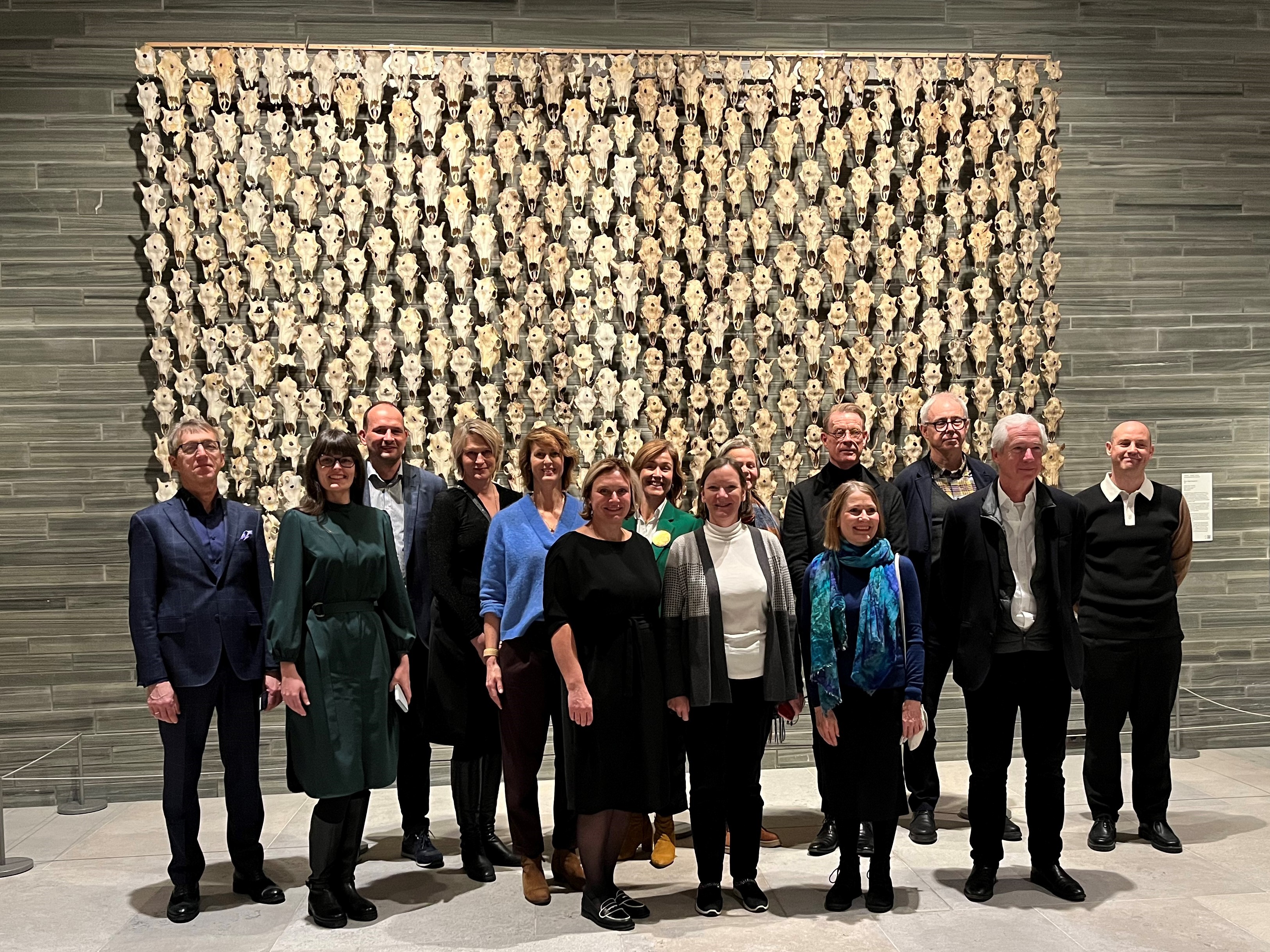Last week in Oslo (Norway), Lithuanian Council for Culture chairwoman Asta Pakarklytė attended a meeting of arts councils and cultural foundations from the Nordic and Baltic countries as well as the United Kingdom. The meeting was organised by Arts Council Norway in an effort to strengthen the network, which is based on the need to unite the aforementioned countries into a sustainable, competitive and attractive cultural region. Although the countries differ in terms of their size and their different political and economic environments, the issues and challenges in the development of the cultural sector are still similar.
The heads of the arts councils of Norway, Sweden, Finland, England and Scotland, the cultural foundations of Latvia and Estonia, and the joint Nordic Culture Fund were present at the meeting, while representatives of the arts councils of Wales and Northern Ireland joined remotely. During the meeting, three main sessions were held. At the first, regional cooperation was discussed and the cases of Nordic and Baltic cultural funds were presented. At the second, the working conditions of artists were reviewed and the case of the Finnish experiment is analysed. Meanwhile, the third session focused on the topics of environmental protection and green mobility.

The chairperson of Northern European arts councils. Photo by the organisers
Challenges in the cultural sector and development of the network
The participants also discussed the challenges the region has experienced of late, including two years of a global pandemic and Russia’s war against Ukraine. These events have had a huge impact on the cultural community in the countries, so the participants shared strategies, ideas and initiatives for the restoration and further development of the cultural sector. The participants also discussed opportunities for expanding the network by involving partners from Great Britain, and looked for initiatives and common areas of development for further cooperation, with a focus on sustainability.
“It’s fantastic that for several years already, the Lithuanian Council for Culture has been participating within the format of the Nordic-Baltic region; this year, it was augmented by the countries of the United Kingdom, which are extremely concerned about the consequences of Brexit and the strengthening of international relations. This meeting brought together a very strong group of northern European arts councils that has been funding art on the arm’s length principle for 70 or 50 years already, so all the knowledge gained at the meeting is very valuable,” says Ms Pakarklytė of her impressions.
Sustainable working conditions for artists
The session on artists’ working conditions and remuneration garnered considerable attention, as this is a concern for all of the participating countries, including even such strong European economies as the United Kingdom, Sweden and Finland. Many countries are looking to link the size of artist grants to the country’s average wage, and to implement sustainable, long-range schemes by awarding grants to the brightest artists for as many as 10 years, like Arts Council Norway is doing now.
The Norwegians consider the long-term sustainability of creative working conditions a priority, and say that “grants are one of the most effective economic tools for artists.” They are focusing on 3, 5 or 10 years of state investment into the brightest artists by awarding Arbeidstipend, or “work grants”. Meanwhile, the Finns are taking it a step further with plans to start an experiment involving hiring artists and paying them a salary, thus moving from a grant model to an employment relationship. In the pilot programme, 20 artists will be selected who will receive a regular average wage for two years, meaning that they will also have social guarantees. Finland’s council will finance a workplace in the organisation that the artist chooses by mutual agreement of the parties.
According to Ms Pakarklytė, “This principle was discussed in Finland for four years before they finally decided to take action and give it a try. The experiment might be a complete flop, but at the initiative level, the idea is something along the lines of socially responsible investing.”